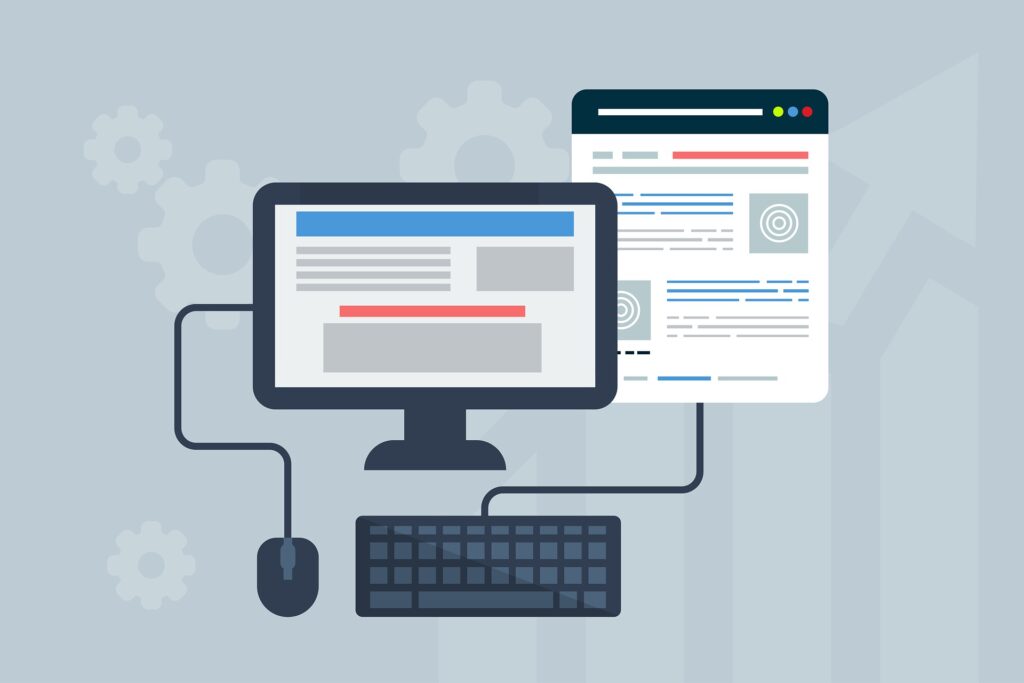Table of Contents
In today’s digital age, almost every business, big or small, can benefit from having a website. Whether you’re a local coffee shop or an online tech startup, your website is often the first place potential customers will go to learn about your business. But you might be wondering: Is it really that important to have a website in 2025?
The answer is yes, and in this post, we’ll explore why. We’ll dive into the tangible benefits of having a website, from boosting your credibility to improving your customer reach. Let’s get into it.
1. Establish Your Credibility
A well-designed website gives your business an air of professionalism. In 2025, many consumers expect businesses to have an online presence. If you don’t have a website, people might question the legitimacy of your business. It’s like having a digital business card that tells people, “Yes, we are serious about what we do.”
Without a website, you could risk losing trust from potential customers who might assume you’re not credible. A simple website with a clear layout, contact info, and an about section can go a long way in reassuring people that you’re a legitimate business.
2. Be Accessible 24/7
One of the most significant benefits of having a website is that it allows your business to be accessible at all times. Unlike a physical store that’s only open during certain hours, a website is always on. This means that your customers can visit your site and learn about your products or services at any time of day or night.
For many businesses, this is particularly helpful. For example, if you’re an e-commerce store, customers can browse and make purchases when it’s convenient for them, even if it’s outside your business hours. This accessibility could directly contribute to increased sales, as it opens up more opportunities for people to engage with your business whenever they choose.
3. Expand Your Reach with a Website
While physical stores limit your reach to local foot traffic, a website can introduce your business to a global audience. A well-optimized website ensures that people from all over the world can find you. Whether you want to reach new customers in different cities, states, or countries, a website helps make this possible.
Thanks to SEO (Search Engine Optimization), your website can appear in search results when people search for services or products similar to what you offer. This increases the chance of your business being discovered by people outside your immediate geographical area.
A mobile-friendly website also plays a big role here. More people are browsing the internet on their phones, so making sure your website is optimized for mobile users will only help extend your reach.
4. Showcase Your Products and Services
A website allows you to showcase your products or services in detail. Whether you’re an artist displaying your work or a contractor offering home improvement services, a website gives you the chance to present your business in the best light possible.
You can add high-quality images, descriptions, customer testimonials, and more to help people understand what you offer. This is also a chance to differentiate yourself from competitors. If you have a visually appealing, user-friendly website, it can give potential customers a positive first impression.
Additionally, you can use your website as a portfolio or case study hub. If you’re in a service-based industry, this is a great way to show off past projects and explain how your services have helped others.
5. Improve Customer Communication
Having a website provides an easy way for customers to get in touch with you. With a contact form, phone number, or live chat feature, customers can ask questions or get in touch for more information without having to visit your physical location.
Additionally, your website can host a blog or FAQs section to address common inquiries. This way, customers can find answers to their questions without needing to call or email you directly. This not only saves time but also improves customer satisfaction, as they can quickly find the information they need.
6. Track Performance and Insights
A website allows you to track various metrics using tools like Google Analytics. You can monitor things like page views, traffic sources, and user behavior to better understand how visitors are interacting with your site. This information can help you make smarter business decisions.
For example, if you see that a particular product page is getting a lot of attention, it might be time to promote that product more or offer a related discount. Alternatively, if a page isn’t performing well, you can use the insights to make improvements and test new strategies.
7. Streamline Operations with Automation
A website can do more than just showcase your business—it can automate processes that save you time and reduce operational costs. By integrating features such as online booking systems, scheduling tools, and payment processing, you can streamline your business operations and increase efficiency.
For example, businesses in service-based industries like salons, consultants, or fitness trainers can use booking systems on their website, allowing customers to schedule appointments directly. This eliminates the need for phone calls and reduces the chances of scheduling errors. Automation reduces administrative work and frees up valuable time to focus on growing your business.
Similarly, if you run an e-commerce store, automated inventory tracking and order processing can help ensure that products are always in stock, and orders are efficiently fulfilled. This improves customer satisfaction while cutting down on manual labor, making your business more efficient.
8. Stay Competitive in Your Industry
In 2025, nearly every business has some form of website, even if it’s just a basic one. If you don’t have an online presence, it could give your competitors an advantage over you. Customers today expect businesses to be online, and if you’re not, they might look elsewhere for the products or services they need.
A website helps you remain competitive in your industry and gives you the opportunity to show your brand’s personality, values, and unique selling points. It’s an essential tool for businesses that want to remain relevant in today’s digital-first world.
Conclusion
Having a website is no longer optional for most growing businesses in 2025—it’s essential. From building credibility and increasing accessibility to reaching new customers and tracking performance, the benefits are clear. While creating and maintaining a website may seem like a significant investment, it’s a long-term asset that can help your business grow and thrive.
Whether you’re just starting out or have been in business for years, consider investing in a website that represents your brand well, reaches new customers, and improves communication. The digital world is here to stay, and your website will be a key player in how your business adapts and succeeds. Get in touch with us for a free consultation.


